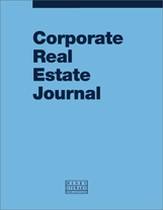The effectiveness of corporate real estate performance: An analysis of the relationship between cost, service quality and consumer satisfaction
Abstract
Corporate real estate (CRE), embracing facilities management, provides organisations with their physical working environments. A literature review of current CRE performance practice and corresponding business management suggested the practices used in measuring and managing CRE performance tend to be narrowly focused and insular. Aligned to this is a commonplace organisational perspective that at best tends to consider CRE as a tactical component of the overall business enterprise model. This has resulted in the identification of relationships between key performance variables, both within CRE and between CRE and business, based on assumptions and received wisdom rather than explicit proof. This research considered whether there is a correlation between the CRE variables of cost performance, service quality and consumer satisfaction. Measurement tools for each variable were designed, tested in a pilot study, and then deployed within a large international organisation's UK portfolio. The research, using various recognised statistical analyses, identified no meaningful correlations between these variables. The findings have potentially significant implications for the field of CRE. They place doubts upon the previously assumed linkages between CRE input and output variables and call into question CRE's existence as a system, and thereby as a field that can systematically improve. In addition, the ability of existing practice to inform and support complex CRE decisions has to be suspect. Key CRE relationships previously thought to exist have been disproved. In seeking possible reasons for this, an expanded consumer/customer satisfaction model, embracing expectations, and a separate CRE performance value chain model have been developed.
The full article is available to subscribers to the journal.
